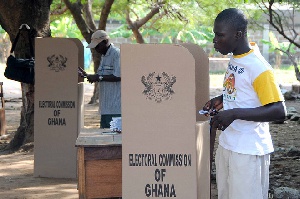With Lesotho heading for their National Elections on the 3rd of June 2017, Africa can only celebrate that some governments still honour the constitution and abide by it. These elections come at a time when the former Prime Minister Pakalitha Mosisili couldn’t hold the coalition together and vote of no confidence was subsequently passed on him. We must congratulate the people of Lesotho for managing the process in such a way that peace and stability was restored and observed.
Over the years, the tiny Kingdom has been plagued by one military coup d’etat after another periodically disturbing peace and stability in the country. For them today, to say they are ready and prepared for the elections, we must celebrate their commitment to hold their nation together and preserve lives. The Independent Electoral Commission of Lesotho has done everything possible to ensure free and fair elections and they should be commended for that.
The continent has seen the rise and fall of despots like Jahya Jammeh, a man who lost elections and tried to overstay, raising legal technicalities. Eventually he was defeated and forced to flee and seek refuge elsewhere. In Burundi after their controversial elections, there is still tensions. The opposition is not backing down. A lasting solution must be found. In Ghana, recently we saw the courage of women to contest for a seat in the highest office in the land.
 President of Kenya, Uhuru Kenyatta
President of Kenya, Uhuru Kenyatta
President Uhuru’s Kenyan government is heading for their National Presidential elections on the 8th of August, we can only hope that the historical tribal tensions will not be a factor. The leader of the opposition Raila Odinga yet again will be contesting against President Uhuru Kenyatta who is seeking a second term.
In Angola President Jose Eduardo dos Santos who has been in power for 37 years, has indicated that he will not be available for the Presidential elections in August 2017 creating an opportunity for a new leader with fresh ideas to take over the reins at the helm of government. He will however continue to be a leader of the ruling party. Africa can no longer afford to have leaders who overstay in office. This practice comes with disastrous consequences for service delivery and development in most instances. We must advocate for a two-term limit in African states going forward. This must be a constitutional obligation.
 President of Rwanda, Paul Kagame
President of Rwanda, Paul Kagame
It is also worth noting that Rwanda eventually has relaxed restrictions for the opposition to contest the elections wherein a 35-year-old female candidate has expressed in interest in contesting for the Presidential seat. President Paul Kagame will be in the race for a third term which is a result of him having changed the constitution to allow this situation to take place. There are some in Rwanda who feel that his leadership style suppresses media freedom and that he is intolerant of dissenting views. Elections are set to take place in August this year. Liberia is another country which in the past was bedevilled by internal strife. They are preparing for elections in October this year.
Africa’s democracies reflect a developing community, with its citizens partaking in electing their leaders. Unfortunately, you still have countries like the Democratic Republic of Congo which has failed to go to elections on time as per their constitutional prescripts. A scenario which must be discouraged. We still have countries like Ethiopia where not all citizens have the right to vote. They too recently elected a Prime Minister. The question is how do we strengthen constitutional reforms where the needs of the people will not be entrusted to the control of kings and chiefs. We continue to see African states supporting each other, observing fellow African elections, tensions are decreasing, voter accountability has also improved.
In Lesotho, you also have younger people contesting and this must be encouraged. Young people of Africa must partake in its development and leadership. After the elections in Lesotho on the 3rd of June, we hope there will be political stability, and leadership elected will get down to service delivery and improve the lives of their people.
We must then ask what these elections mean for ordinary citizens, political mandates are reviewed so as to continue improving the lives of citizens. African leaders must be reminded that beyond being affirmed to rule, they have a huge responsibility of improving the lives of their people. Your people’s living conditions must improve for the better. Those who hold public office for selfish gains must be exposed and stopped if we are to have meaningful change and development in the continent.
Rhulani Thembi Siweya is the founder of Africa Unmasked and an NEC member of the ANCYL, she writes in her capacity as patron of Africa Unmasked
Opinions of Friday, 2 June 2017
Columnist: Rhulani Thembi Siweya



















